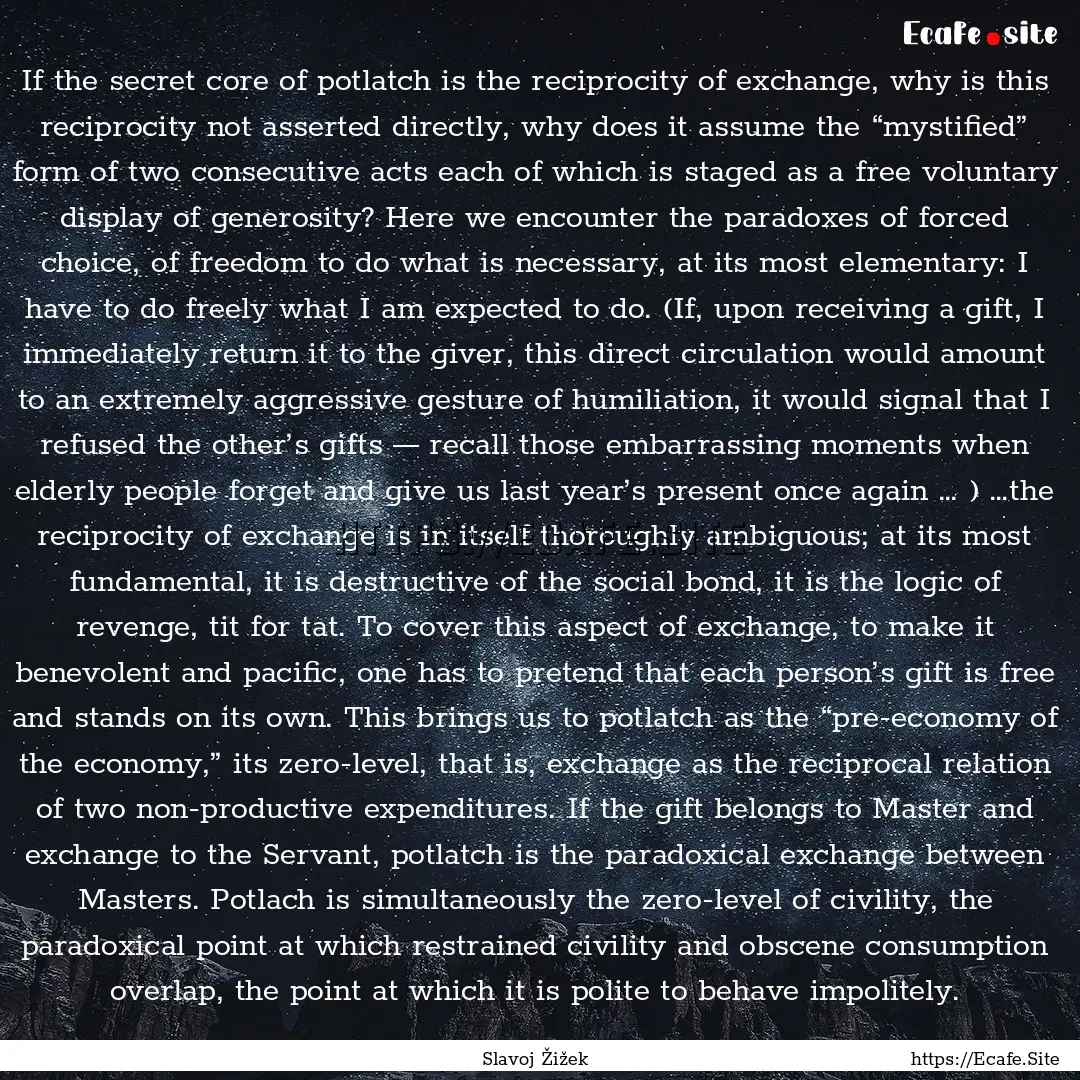
Report, if you have a problem with this page“ If the secret core of potlatch is the reciprocity of exchange, why is this reciprocity not asserted directly, why does it assume the “mystified” form of two consecutive acts each of which is staged as a free voluntary display of generosity? Here we encounter the paradoxes of forced choice, of freedom to do what is necessary, at its most elementary: I have to do freely what I am expected to do. (If, upon receiving a gift, I immediately return it to the giver, this direct circulation would amount to an extremely aggressive gesture of humiliation, it would signal that I refused the other’s gifts — recall those embarrassing moments when elderly people forget and give us last year’s present once again … ) …the reciprocity of exchange is in itself thoroughly ambiguous; at its most fundamental, it is destructive of the social bond, it is the logic of revenge, tit for tat. To cover this aspect of exchange, to make it benevolent and pacific, one has to pretend that each person’s gift is free and stands on its own. This brings us to potlatch as the “pre-economy of the economy,” its zero-level, that is, exchange as the reciprocal relation of two non-productive expenditures. If the gift belongs to Master and exchange to the Servant, potlatch is the paradoxical exchange between Masters. Potlach is simultaneously the zero-level of civility, the paradoxical point at which restrained civility and obscene consumption overlap, the point at which it is polite to behave impolitely. ”

Slavoj Žižek
From : In Defense of Lost Causes



